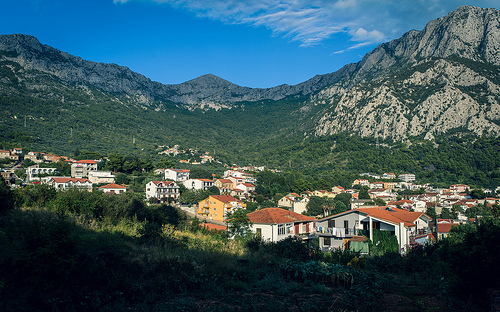Located in southeastern Europe, Croatia is bordered by countries such as Hungary, Slovenia, and Bosnia & Herzegovina. Croatia has a thriving tourism industry and is known for its rich historical heritage, abundant natural scenery and pleasant weather. The country also attracts a growing number of expats. Many of them live in the capital city of Zagreb, a modern destination that is on par with other popular cities of Central Europe such as Budapest and Prague.For foreign nationals moving to a different country, buying property is a big investment. Here are some guidelines for buying property in Croatia.
Buying property as a foreign national
There are some restrictions on property ownership by foreign nationals in Croatia. Only those nationals whose origin countries have a reciprocity agreement with Croatia are eligible to acquire real estate. This means that Croatian nationals are free to buy property in those particular countries, such as in the EU countries (except Italy), Hungary, Russia and the United States. Citizens of Switzerland, Bosnia and Herzegovina, and Italy are permitted to buy property only if they intend to live in Croatia permanently.
Foreign nationals must also be aware that before a sale can be made final, consent is required from the Ministry of Foreign Affairs. This process can take anywhere between two to six months during which the ministry examines the foreign laws to determine if the reciprocity agreement exists.
Foreigners are not permitted to acquire agricultural and forest land. They are also not allowed to buy those properties that are considered to be protected cultural monuments.
Property acquisition process
The first step in buying property in Croatia is the pre-contract agreement between the buyer and seller. The buyer must pay a down payment, which is usually equivalent to ten percent of the selling price.
The buyer is required to apply for consent from the Ministry of Foreign Affairs. The documents necessary for this include the purchase agreement, proof of ownership from the seller, certification that the property is within the boundaries of the construction zone envisaged in the urban development plan, buyer’s proof of citizenship, seller’s proof of citizenship, and power of attorney, in case an attorney is involved in the process.
In the next step, a lawyer prepares a binding contract, which is signed by a notary, and an official note of the contract is entered in the Land Registry. Once the Ministry of Foreign Affairs issues consent, the contract must be registered in the Municipal Cadastral Department’s Land Books and payment of purchase tax must be made. New buildings (built after 31 December 1997) do not require payment of the 5% real estate transfer tax, but 25% VAT is applied on the new construction value of the building.
If the buyer does not fulfill the contract terms during the pre-contract stage, the down payment will not be returned. If the seller fails to fulfill the terms of the agreement, he must pay compensation in the form of double the amount of the deposit.
An important point to keep in mind is that of rightful ownership of the property. In Croatia, there are a number of properties where the owner is not actually the legal owner. This is on account of the fact that a portion of the population was compelled to leave the country during the war. If the ownership is unclear, the government does not permit the purchase of the property. Therefore it is essential to determine the legal ownership of a property before entering into the pre-contract.
Transaction costs
The transfer of real estate ownership is subject to a transfer tax of 5% of the market value. Both Croatian nationals and foreign nationals are required to pay this tax. It does not apply in the case of new buildings, where VAT of 25% is applied. Lawyers usually charge legal fees of around 1% of the purchase value, while real estate agents charge a commission that is between 3 to 6 percent, paid by buyer and seller separately. The registration fees and other costs can be estimated to range between 0.01 to 0.05 percent of the property value.

